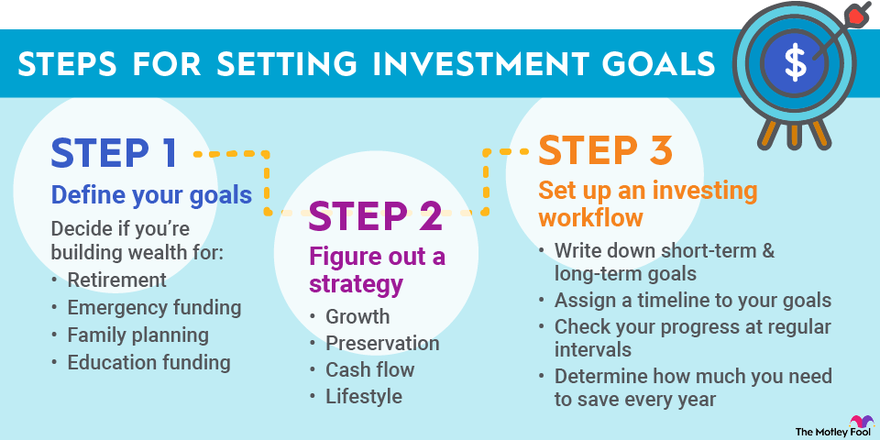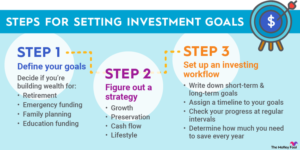
In your opinion, how can venture wagers be monitored?
- Diversification: Separate your efforts across a variety of asset classes to lessen the impact of unconventionality on any one hypothesis.
- Resources are spread out: Create a portfolio that is even, consistent, and in line with your risk resistance and venture goals.
- Research: Direct start to finish assessment and regularly screen the display of your endeavors prior to chasing after any hypothesis decisions.
- Go for long-term projects: Avoid the transient hypothesis and concentrate on long-term theory goals.
- Keep an eye on politics and the economy: Keep an eye out for upcoming political and economic developments that may have an impact on the value of your investments.
- Make good on your promise: When things don’t go as planned, making rash purchases increases the likelihood of misfortune.
- Put stop-loss orders in place: In the event of a market decline, stop loss orders can be used to limit losses.
- Counsel an expert: Consult a financial advisor for a customized investment strategy tailored to your goals and risk tolerance.
- Keep in mind that these are just broad procedures and that every person has unique theory targets and risk potentials. It is essential to speak with a financial expert prior to making any theory decisions.
What are the most common mistakes that people make when managing their hypotheses?
- Too much emphasis on the benefits immediately: Putting too much emphasis on short-term gains can lead to rash choices. When managing money, it’s critical to keep a long-term perspective.
- Having a restricted number of portfolios: Because you run the risk of losing your investments, it can be risky to store all of your assets in a single location. You can lessen risk by including various stocks, bonds, and land interests in your portfolio.
- Adjusting to promoting shifts: During market slumps, panickers much of the time sell their ventures. Regardless, selling low and buying high is a regular stumble. It is essential to maintain mental equilibrium and adhere to your growth plan.
- Insufficient research: Unusual commitments can prompt unfortunate vocation decisions. It is essential to carry out a top-to-bottom investigation into the likely risks and returns associated with a resource class before beginning to manage money.
- owing huge load of cash: Over the long term, high cost proportions and board costs can lower speculation returns. Fees need to be kept low if you want to get the most out of your investments.
- Charges not paid: If you don’t consider the effects on your taxes, your overall returns may be lower and you may pay more taxes than you anticipated. Understanding the responsibility results of your hypothesis decisions is essential.
- Trying to collect as many smoking examples as possible: Advanced monetary forms and elegant stocks can be hazardous ventures on the off chance that you don’t get your work done. It is essential to evaluate speculations based on their essentials rather than publicity.
- Overconfidence: Unreasonable certainty can lead to poor speculation decisions and careless wagering. Keeping a mindset of humility and continuing to learn about hypotheses through guidance and assessment are basic.
- Timing the market: Timing the market can be challenging and risky. A predictable speculation procedure and a drawn out point of view are ideal.
- Not having a savings account for an emergency: If there is no reinforcement stash, selling hypotheses can be erroneously launched in the event of an unexpected expense. In order to cover costs that arise out of the blue, you need your own emergency fund.
How often should a financial backer examine and modify their speculation portfolio?
Venture portfolios ought to be examined and modified at least once a year, or whenever major life events like a new job, marriage, or the birth of a child occur. Moreover, it is essential to know about any critical financial or market moves that could affect how your portfolio is introduced. The frequency of portfolio surveys will ultimately be determined by individual circumstances, speculation objectives, and risk resistance. Always consult a financial advisor before making significant changes to your investment portfolio.
Diversification is also important for investment portfolios. Expanded portfolios may have the potential to both reduce risk and enhance returns. This entails investing in a variety of resources, such as stocks, bonds, land, goods, and others. One way to advance within each asset class is to concentrate intensely on various organizations and regions. Diversification may be able to reduce losses in some market conditions, but it does not always guarantee profits. Remembering this is essential.
Fees are another important thing to think about. Understanding the costs of a particular undertaking or money market save is basic since they can basically impact your advantages over an extended time. Pay close attention to the various fees, such as warning fees, exchange fees, and
cost proportions, when reading the fine print.
To wrap things up, following a drawn out venture technique can assist you with accomplishing your monetary goals. This suggests remaining focused in on your money improvement strategy and avoiding critical trading decisions light of brief market instabilities. Always review your project’s goals on a regular basis and make any necessary adjustments.
How might one let know if a hypothesis is getting along admirably?
- Positive outcomes: Positive advantages from a consistent foundation are a basic model for a performing hypothesis. This shows that the investment is making money and growing steadily.
- overcoming resistance: Assuming hypotheses reliably outflank the general market, it is likewise conceivable to believe them to perform well. This demonstrates that the venture is generating more revenue than typical investments.
- Low choppiness: Less peculiar trips, taking everything into account, are viewed as perfect. This is due to the fact that they are less likely to suffer significant losses and are more predictable.
4.Strong groundworks: Investments that have solid underlying fundamentals like a solid financial position, strong earnings growth potential, and a solid business model are more likely to perform well.
- Diversification: A well-diversified portfolio with a wide range of investments can also be considered to be performing well. Broadening supports risk reduction and misfortune anticipation.
- Consistency: A successful project consistently achieves or exceeds its display goals. This is on the grounds that they are more reliable and have made progress before.
- Transparency: When businesses are transparent in their work, on the board, and in their disclosures, the majority of people believe that they are performing well. This suggests that the investment is being dealt with and managed in an honest manner.
- Opportunities for growth over time: Normally, speculations are considered to perform well in the event that they can develop reliably over the long haul. This is because they offer the possibility of larger returns over time and are less susceptible to short-term fluctuations.
- Adaptability to market changes: Businesses are considered to be doing well if they are able to respond to and adapt to the market. This is due to the fact that they are able to seize new opportunities while avoiding potential risks.
- Successful managers: It is believed that a project is performing well when it is overseen by experts who have
extensive involvement and a solid track record of progress. This is because they have the skills and knowledge to manage the project effectively and pursue taught speculation options.
What strategies do you have for lowering the risk of investments?
- Diversification: Your investments should be spread out across a variety of markets, industries, and asset classes. If one bet is ineffective, this brings down the probability of setback.
- Focus on what’s to come: At the point when you put in however much you can, you allow your wagers an opportunity to develop and endure variances on the lookout.
- Introspective investigation and separation: Before taking on a responsibility, thoroughly investigate the idea and, if all else fails, think about hiring a professional.
- Think about your feelings: There ought to be no trepidation, energy, or whatever other feeling while settling on venture choices. Keep your cool and consider the investment’s long-term potential.
- Stay current: Be aware of any changes to your investment and the most recent market news and trends.
- Set attainable objectives: Don’t expect to be rich right away. Limit yourself to your hypotheses and set attainable goals.
- Pay attention to your assets: Really explore your undertakings dependably and make any key acclimations to your portfolio to keep it according to your objectives.
- Separate among effective money the board and hypothesis: Choosing sound investments for long-term growth is an important part of financial planning, while gambling means placing high-risk bets with the sole purpose of making a quick profit.
- Consider the development of asset classes: To reduce risk, for instance, you should spread your investments in stocks across a variety of businesses and sizes.
- Don’t put all your eggs in one basket: Don’t invest too much in a single asset or investment. You might lose a lot of money if that investment does poorly.
How would you know when to purchase and when to sell an endeavor?
It is essential to keep in mind that any decisions about future ventures should be carefully evaluated through thorough investigation, research, and meetings with a financial advisor. Personal investment objectives, risk tolerance, economic conditions, market trends, company performance, and financial capabilities should all be taken into consideration when purchasing or selling an investment.
If you want to lower the risks of any given venture, you must
also expand the size of your investment portfolio. Besides, it is crucial for keep a long perspective and make an effort not to go with hurried decisions considering market fluctuations as soon as possible. Last but not least, keep in mind that past performance does not necessarily predict future profits; Therefore, it is essential to oversee regular screenings and ongoing evaluations of your activities.
Diversification can help spread risk and protect against significant losses in the event of a failed investment. It is easier to avoid making hasty, emotional decisions with a long-term perspective when the market is volatile, which increases the likelihood of long-term returns. Financial backers can also keep up with news and trends that could affect their portfolio by constantly observing and investigating their projects.




